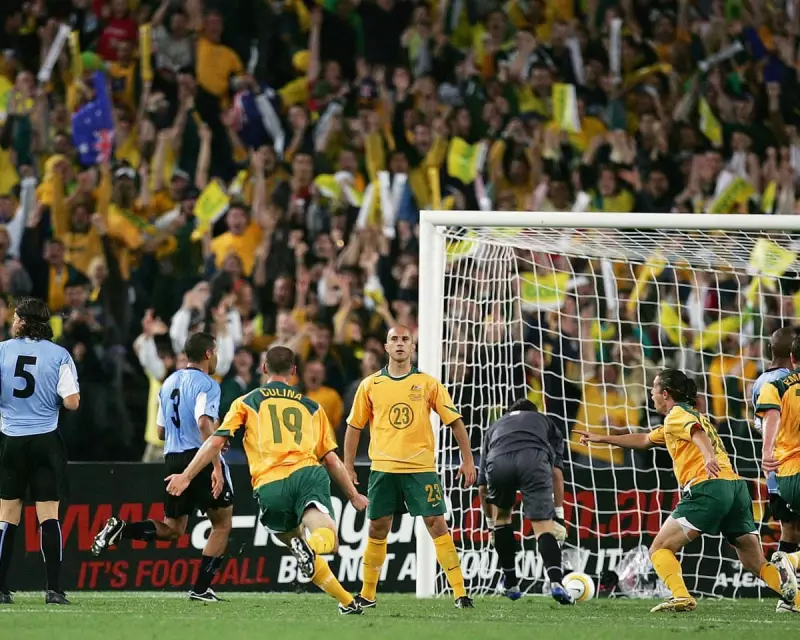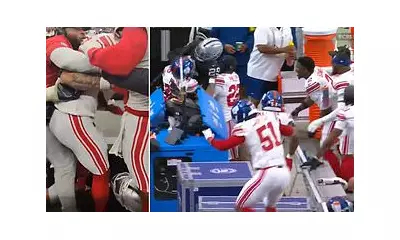
For 32 agonising years, Australian football fans endured a relentless cycle of near-misses and heartbreaking failures in World Cup qualification. That all changed on one unforgettable evening – 16 November 2005 – when the Socceroos finally shattered their curse against Uruguay in a dramatic penalty shootout.
A Legacy of Football Heartbreak
The weight of history pressed heavily on Australian shoulders that night. The national team's catalogue of World Cup qualifying disasters was extensive and painful. In 1994, a cruel deflection off Alex Tobin sent Argentina through instead. In 1998, a two-goal lead against Iran evaporated after a pitch invader disrupted play, allowing an infamous comeback. The 2001 defeat to Uruguay was so comprehensive that distraught players left the pitch in tears.
Many supporters, including this writer, had sworn off putting themselves through such emotional turmoil again. The prospect of another devastating conclusion felt almost inevitable when Uruguay arrived with a 1-0 lead from the first leg. The equation was simple – Australia needed to win by at least one goal – but their history suggested the perfect scenario for another catastrophic failure.
The School Friend Who Became a National Hero
The personal connection to that historic night makes the memory particularly poignant. The decision to attend came through an old school friend who had organised tickets, insisting "We have to go, for Marco."
That Marco was Marco Bresciano, by then an established Socceroos star, who had attended Marcellin College with our group. Our most significant interaction during school years was an accidental collision in a year seven PE class that nearly knocked us both unconscious – an incident that takes on greater significance when you realise you almost wiped out one of Australia's future football legends.
Bresciano's dedication was evident even in his youth. After being told he couldn't make a representative team because he couldn't use his left foot, he didn't complain. Instead, he spent evening after evening kicking hundreds of balls against his garage wall with his weaker foot until it became a potent weapon. That perseverance later served him well in Italy and would prove crucial for Australia on this momentous night.
The Night That Changed Australian Football
From seats fifteen rows behind the goal at Telstra Stadium, the familiar dread began to surface during a frantic opening. Uruguay launched wave after wave of attacks, with Álvaro Recoba and Diego Lugano both coming agonisingly close to scoring. After twenty minutes of sustained pressure, the collective anxiety was palpable throughout the stadium.
Then came the breakthrough at the thirty-five minute mark. Tim Cahill found Mark Viduka, whose clever backheel reached Harry Kewell. When Kewell's mistimed effort fell awkwardly, Bresciano lunged sideways and connected perfectly – scoring with that practised left foot.
The stadium erupted in cathartic release, but amid the chaos, Bresciano stood immobile – legs spread, arms wide, glaring defiantly at the Uruguayan players. His message was unmistakable: this time would be different.
He was right. Australia endured sixty more tense minutes of regular time and another thirty of extra time without conceding, setting the stage for the legendary penalty shootout. Mark Schwarzer emerged as the hero with two crucial saves before John Aloisi stepped up to write his name into Australian sporting folklore, slamming home the decisive penalty to end thirty-two years of World Cup exile.
The explosion of joy that followed was unprecedented in Australian football history. Players flooded onto the pitch, fireworks illuminated the sky, and Men at Work's "Down Under" blasted through the speakers as strangers embraced throughout the stands. When one fan released me from a bear hug, I remarked, "Marco's our mate." His response captured the spirit of the evening perfectly: "Tonight, he's everyone's mate."





